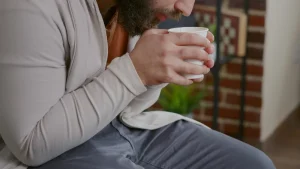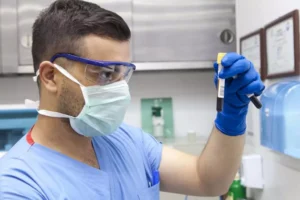
Technically, yes—drinking no more than two drinks for men or a single drink are consumed in a given day can temporarily lower blood pressure. It’s best to consult your doctor about when and what you can drink while on blood thinning medication. For moderate drinkers, the blood-thinning effects of alcohol are short-lived.

Are there any conditions that should prevent me from taking an anticoagulant?
- Anticoagulants are a group of medications that decrease your blood’s ability to clot.
- They will consider the state of your health and the medications you take.
- Reach out to a healthcare provider or a reputable addiction recovery center to start on a path towards recovery and a healthier lifestyle.
- Alcohol can stimulate the liver to then increase production of HDL (high-density lipoprotein cholesterol), which can then work to break down LDL (low-density lipoprotein cholesterol).
- The effects of alcohol interfere with the blood clotting process.
Eliquis is a common blood thinner that does not require routine blood tests like some anticoagulants do. Using alcohol with Eliquis can increase the risk of internal bleeding, so alcohol use should be limited. Coumadin is one of the most commonly used blood thinners in the U.S., but it carries a 3% to 6% risk of major bleeding. Alcohol should be avoided when taking Coumadin, as it is one of the most serious risk factors for complications with this medication. Excessive long-term alcohol intake can contribute to blood clot formation by increasing platelet levels and activation, leading to a higher likelihood of clotting.
Eating foods with too much vitamin K
But prolonged alcohol abuse can lead to chronic (long-term) pancreatitis, which can be severe. Having a glass of wine with dinner or a beer at a party here and there isn’t going to destroy your gut. But even low amounts of daily drinking and prolonged and heavy use of alcohol can lead to significant problems for your digestive system.
Blood Thinners and Alcohol: Interactions, Risks, and Side Effects
They may be able to advise you on how often and how much alcohol you can consume safely. Short-term effects occur because of how alcohol impacts receptors in the blood. Specific blood vessels near the heart rely on receptors to keep blood pressure at a healthy level. When alcohol is in the blood, these receptors do not function as they should. When it comes to the health of your blood vessels, have a conversation with your doctor. If you do drink alcohol while on blood thinners, do so in moderation.
Health Categories to Explore
Clotting factors are also released from platelets that help form a mesh to form the plug to close the wound. Ultimately, anyone who is taking any kind of blood-thinning medication should speak with their doctor before mixing it with alcohol. The different risks that are present will vary based on each individual, and someone who has not spoken with their doctor can have risks they don’t know about. Blood thinners can be dangerous by themselves as well, making it essential to seek medical advice when symptoms or potential concerns arise.

Find Assistance at Bayview Recovery
- For instance, some anticoagulants do this by competing with vitamin K, which your body needs to make proteins called clotting factors.
- There are no specific warnings about consuming alcohol while taking other blood thinners.
- In fact, excessive alcohol consumption can have negative effects on cardiovascular health.
- Plavix increases the risk of stomach bleeding when coupled with daily alcohol use.
- Anticoagulants are a group of medications that see widespread use for a variety of reasons.
Regardless of the type of blood thinner being used, you should generally avoid alcohol while taking a blood-thinning medication. The actual risks to a particular individual are very https://ecosoberhouse.com/ case-specific and should be discussed with a doctor. Having a drink or two every once in a while may be fine when you’re on blood thinners — just be sure to talk to your doctor.
Most popular in Drugs
- In the coagulation cascade, damaged tissue sets off a cascade of events that activates several proteins in the blood, called clotting factors.
- If you take a blood thinner, be sure to follow your health care provider’s advice on dosing.
- Long-term heavy drinking is linked to an elevated risk of several cancers, including liver, breast, esophagus, and mouth cancers.
- If you notice any of these symptoms, seek medical attention right away.
- When alcohol is consumed, it causes the blood vessels to relax and expand, resulting in a temporary increase in blood flow.
This is especially true thanks to the approval of several newer drugs, which you take by mouth, within the past 10 years. In the United States, more than 5 million individuals covered by Medicare Part D received a prescription for an anticoagulant medication in 2019. In addition, about one-third of all hospital blood thinners and alcohol patients receive some form of anticoagulant medication. But if you do drink, don’t have more than one to two drinks at a time. Other medicines and supplements, including over-the-counter ones, can interfere with these drugs. Tell all of your doctors, including your dentist, that you’re taking a blood thinner.

Additionally, the authors discussed older studies that suggested binge drinking can cause temporary increases in blood pressure. They also highlighted that long-term heavy drinking and binge drinking may increase someone’s risk of various cardiovascular conditions. Short- and long-term alcohol use has different effects on the blood. Short-term alcohol use can lead to high blood pressure and thinned blood because it hinders blood cells’ ability to clot.
Leave a Reply